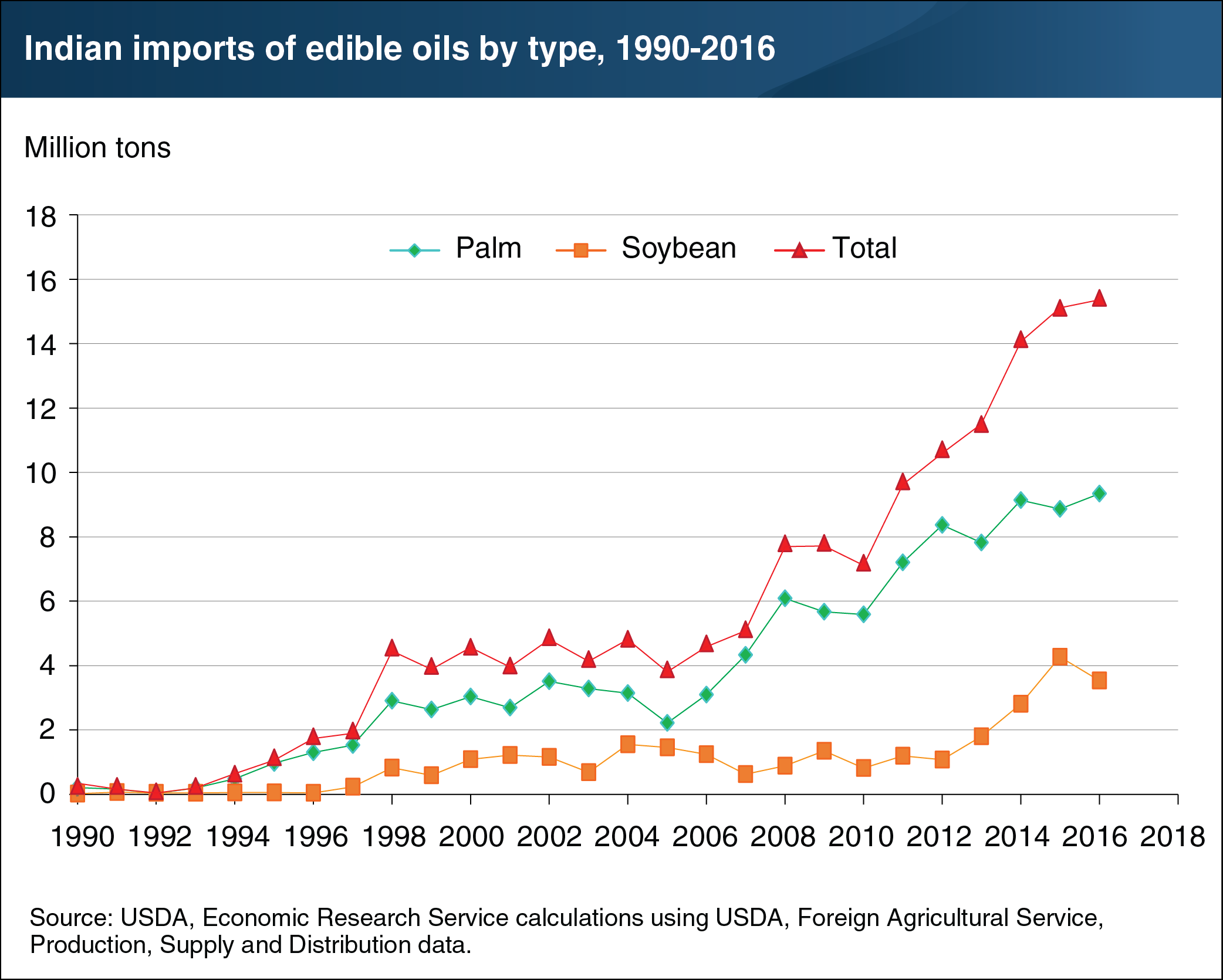India has emerged as a key global importer of vegetable oils
- by Suresh Persaud and Utpal Vasavada
- 10/10/2019

India is the world’s leading importer of vegetable oils (primarily soybean oil and palm oil), ahead of the European Union (EU) and China. At 15.4 million metric tons in 2016, India accounted for over 20 percent of global vegetable oil imports. India’s demand for vegetable oils has grown almost without interruption since the 1970s, propelled by rapidly expanding population and strong per capita income growth (on an inflation-adjusted basis). India’s domestic production of oilseeds, the raw material that is processed into oil and meal, is inadequate for meeting domestic demand for vegetable oils. Moreover, a distinctive feature of the Indian market is that India’s tariff and nontariff barriers effectively prevent imports of oilseeds (including soybeans), which are the basic ingredient for vegetable oil. Despite allowing imports of vegetable oils (subject to tariffs) that are produced from genetically modified (GM) oilseeds, India does not grow or allow import of GM soybeans. With India’s demand for edible oils far surpassing its capacity to supply oil, India has emerged as a key import market for edible oils. This chart appears in the ERS report, Impacts on India’s Farmers and Processors of Reducing Soybean Import Barriers, released in October 2019.


